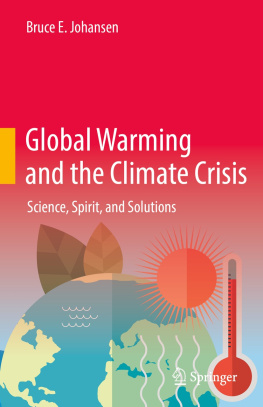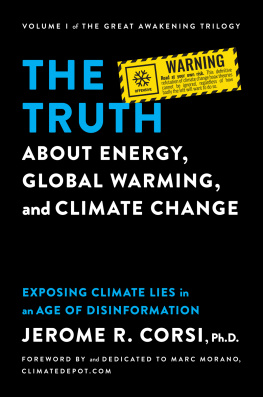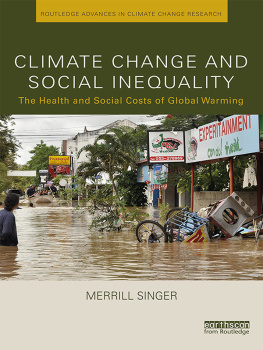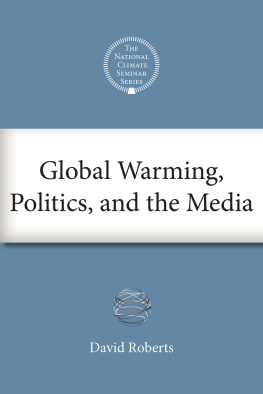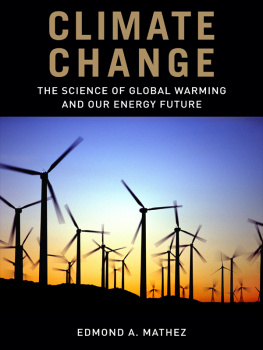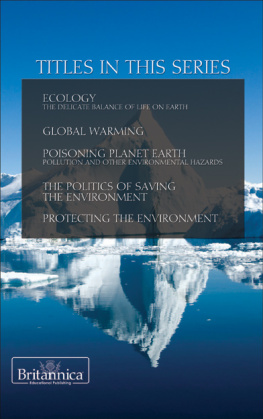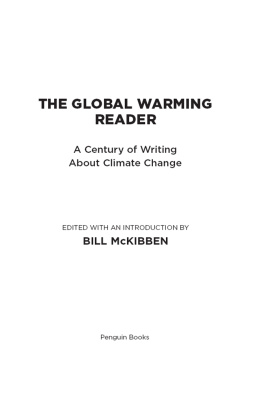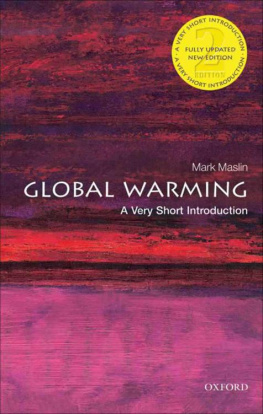First published 2009 by Left Coast press, Inc.
Published 2016 by Routledge
2 Park Square, Milton Park, Abingdon, Oxon OX14 4RN
711 Third Avenue, New York, NY 10017, USA
Routledge is an imprint of the Taylor & Francis Group, an informa business
Copyright 2009 Taylor & Francis
All rights reserved. No part of this book may be reprinted or reproduced or utilised in any form or by any electronic, mechanical, or other means, now known or hereafter invented, including photocopying and recording, or in any information storage or retrieval system, without permission in writing from the publishers.
Notice:
Product or corporate names may be trademarks or registered trademarks, and are used only for identification and explanation without intent to infringe.
Library of Congress Cataloging-in-Publication Data
Global warming and the political ecology of health : emerging crises and systemic solutions / Hans A. Baer and Merrill Singer.
p. ; cm. (Advances in critical medical anthropology ; v. 1)
Includes bibliographical references and index.
ISBN 978-1-59874-353-1 (hardback : alk. paper) -- ISBN 978-1-59874-354-8 (pbk. : alk. paper)
1. Global warming--Health aspects. 2. Medical anthropology. I. Baer, Hans A., 1944- II. Singer, Merrill. III. Series.
[DNLM: 1. Greenhouse Effect. 2. Environmental Exposure. 3. Environmental Health--economics. WA 30.5 G562 2009]
RA793.G565 2009
363.7387--dc22
2008032124
Hardback ISBN 978-1-59874-353-1
Paperback ISBN 978-1-59874-354-8
Cover design by Cheryl Carrington
O ur world is changing in dramatic and consequential ways. From melting glaciers to rising seas, and from increases in violent storms to emergent and spreading diseases, many of these changes reflect a pattern of planetary warming. While some have called into question whether the changes we are seeing around us are the outcome of something more than cyclical patterns, the sheer volume of mounting data of diverse sorts has convinced most climate scientists that the global warming is real, that it is increasingly threatening to human life and well-being, and that it is largely the result of human or anthropogenic activities, particularly since the Industrial Revolution. According to Dessler and Parson,
Of all the environmental issues that have emerged in the past few decades, global climate change [or global warming] is the most serious, the most difficult to manage. Many aspects of human society and well beingwhere we live, how we build, how we move around, how we earn our livings, what we do for recreationstill depend on a relatively benign range of climate conditions, even though this dependence has been reduced and obscured in modern industrial societies by their wealth and technology. [Dessler and Parson 2006:1]
In short, there is little doubt any more that global warming will have severe economic, social, political, and health consequences as the 21st century unfolds. Even though these consequences will not be equally distributed nor will they arrive all at once, it is clear that collectively human societies have never faced an environmental problem on this scale and complexity before. Despite such observations, most anthropologists, including medical anthropologists, as well as other social scientists, have been slow in coming to grips with the impact that global warming is presently having and will continue to have upon humanity for decades and possibly even centuries to come.
This book seeks to develop both a critical anthropology and a critical medical anthropology of global warming, one that moves beyond the emphasis of most anthropological and other social scientific studies with their limited focus on adaptation of human societies to global warming. As a few world systems theorists and critical environmental sociologists have done, we argue that global warming ultimately is rooted in the capitalist world system with its orientation to ever-expanding production and consumption, both of which contribute to the emission of various greenhouse gases into the atmosphere. Likewise, it is our perspective that health should not be seen through a narrow medical lens or as a series of isolated problems. Rather, health is fundamentally rooted in sociocultural and political-economic systems, and thus intertwined with the world system and with anthropogenic climate change.
While climate scientists have done humanity a tremendous service by calling attention to the seriousness of the consequences of global warming or climate change, the solutions that they propose in terms of how societies can adapt to and mitigate global warming fail to call for the paradigm that an authentic program of mitigation requires. As critical medical anthropologists, it is our contention that if humanity is going to respond adequately to global warming, it will have to make a transition from the capitalist world system to a global democratic order based upon ecosocialist principles. This book examines the gravity of global warming; its manifestation as yet another contradiction of global capitalism; changes in human health, including settlement patterns, subsistence, nutrition, and disease, as fundamentally intertwined with the effects of climate change and global capitalism; the inadequacies of the emerging climate regime and green capitalism as a strategies of mitigation; and ultimately the need to create a democratic ecosocialist world system as a strategy of genuine mitigation.
A number of years ago, before the full magnitude and accelerating pace of global warming became clear, the British social epidemiologist Peter Townsend argued that to significantly improve world health we must address structural barriers that create illness and death among poor and socially marginalized groups within and across nations. To achieve health equity, he argued (Townsend 1986:29), the only long-term remedy is to restrict the power and wealth of the rich, to dismantle the present structures of social privilege, and to build social institutions based on fair allocation of wealth and on social equality. To this profound proposition, we would add, we must also address the present structures of production and associated ideologies of consumption based on sound principles of environmental preservation. Further, because structures of social inequality, environmental degradation, and human health are inexorably linked, in the contemporary world social justice must include environmental justice and health equity.


